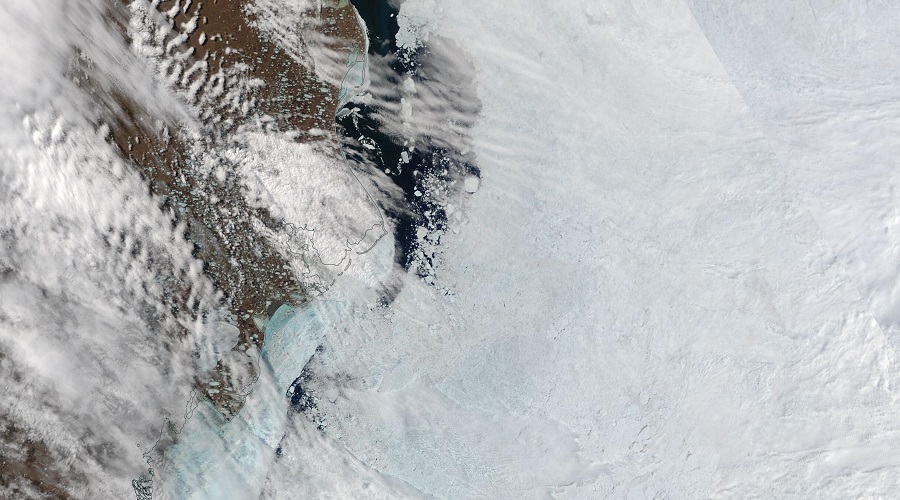Thursday, July 13, 2023
Yellow Barn’s 54th summer festival features three unique opportunities to experience Lei Liang’s extraordinary “Six Seasons” (2022) for improvising musicians and pre-recorded sounds.
On Thursday, July 13, Yellow Barn’s festival concert will include three of Liang’s “Six Seasons” on the Big Barn stage. Yellow Barn will also set up a “listening room” between July 14 and 16 from 9:30am - 5:00pm where audience members can immerse themselves fully in Liang’s ice soundscapes. On Sunday, July 16 at 2pm, we will host a “Patio Noise” virtual discussion with Lei and Dr. Joshua Jones, the oceanographer with whom he collaborated to create this special piece.

Season 5: Cacophony (Image from the Chukchi Sea)
Six Seasons represents the culmination of a years-long collaboration between Liang, the inaugural Research Artist in Residence at the Qualcomm Institute (QI) and Chancellor’s Distinguished Professor of Music at UC San Diego, and oceanographers at Scripps Institution of Oceanography.
In composing Six Seasons, Lei Liang used environmental sounds recorded from hydrophones under the remote Chukchi Sea to tell an urgent and breathtaking story about our oceans. “Working with Professor Liang has transformed sound recordings that we typically think of as data into a personal experience of the underwater world deep within the Arctic Ocean,” said Jones. “It’s been extremely meaningful and we’re asking new research questions as a result.”
The work’s six movements reflect the Inuit categorization of the seasons, marked not by numerical dates but by environmental changes both audible and inaudible (In Liang’s terms, ice is the “living score” by which the Inuit live their lives; in Six Seasons, it also becomes a “living score” for improvising musicians to listen and respond to. “These sounds call for a different way of listening, challenging our temporal and spatial orientations,” Liang has said. “Increasingly, these sounds are drowned out by anthropogenic noises including industrial activities and passing ships. Today, we can no longer presume any empathy with the ocean merely from the comfort and the fixed perspective of a beach chair: our oceans are in crisis."
